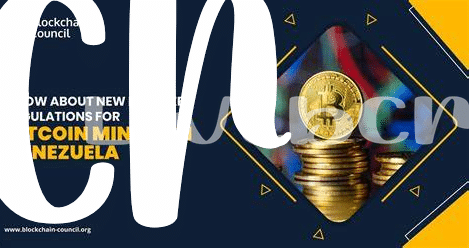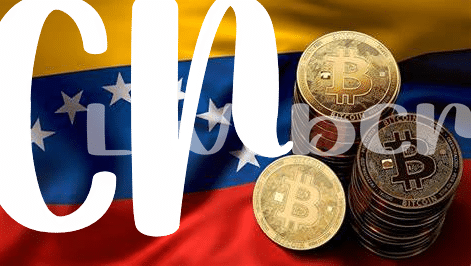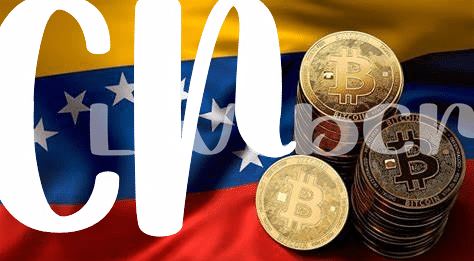Growing Environmental Concerns 🌍

The heightened focus on environmental sustainability in the context of Bitcoin mining has drawn global attention. The intensive energy consumption of cryptocurrency mining operations, particularly in countries like Venezuela, raises concerns about the long-term impact on the environment. As the demand for Bitcoin continues to surge, the energy-intensive process of mining poses challenges in terms of carbon footprint and resource management. The evolving conversation around growing environmental concerns necessitates a deeper exploration of sustainable practices and regulatory measures to mitigate the ecological impact of cryptocurrency mining activities.
Impact on Energy Consumption ⚡
Bitcoin mining operations have raised increasing concerns regarding their significant impact on energy consumption. The surge in mining activities has led to a surge in the global demand for electricity, with estimates suggesting that Bitcoin mining alone consumes more electricity annually than some countries. This exponential energy usage not only strains existing power grids but also raises questions about sustainability and environmental responsibility within the crypto mining sector.
In response to the escalating energy demands of Bitcoin mining, various technological innovations and energy-efficient alternatives have emerged. These advancements aim to mitigate the sector’s energy consumption while promoting sustainable practices. Implementing these solutions could potentially alleviate the strain on energy resources and pave the way for a more environmentally conscious approach to cryptocurrency mining operations.
Government Regulations and Policies 📜

Governments worldwide are closely monitoring and implementing regulations to address the environmental impact and energy consumption associated with Bitcoin mining. In Venezuela, policymakers are grappling with the growing concerns surrounding the sustainability of this digital currency mining practice. Recognizing the strain on energy resources and the potential ecological ramifications, authorities are deliberating on measures to promote more sustainable mining practices and ensure adherence to environmental standards. These regulatory efforts aim to strike a balance between harnessing the economic benefits of cryptocurrency mining and mitigating its environmental footprint. By formulating comprehensive policies, the government in Venezuela is striving to navigate the complex intersection of technological innovation, economic development, and environmental sustainability in the realm of Bitcoin mining.
Social Implications and Community Responses 🤝

Social implications of Bitcoin mining in Venezuela extend beyond just environmental impacts, resonating deeply within local communities. As mining operations demand substantial resources, there is a visible divide in how these activities benefit or burden the people. Some communities embrace the economic opportunities offered by mining, while others express concerns about its consequences on their way of life and social structures. This dichotomy highlights the complex relationship between technological advancements and socio-economic dynamics, prompting varied responses from different sectors of the society.
Community responses to Bitcoin mining in Venezuela often reflect a mix of hope for economic growth and fear of potential disruptions. Some groups actively engage in dialogue with mining companies and government entities to shape policies that can lead to more sustainable practices. Others voice their dissent, advocating for stricter regulations to mitigate the negative impacts on their surroundings. These divergent reactions underscore the need for a balanced approach that considers both the benefits and challenges associated with cryptocurrency mining activities. Overall, the local response to Bitcoin mining in Venezuela underscores the importance of fostering open communication and collaboration to address the social implications effectively. To delve deeper into the global impact of energy regulations on Bitcoin mining, explore the insights provided in Wikicrypto.News’ article on challenges and opportunities in Tuvalu’s Bitcoin mining sector.
Technological Innovations and Alternatives 💡
In response to the increasing concerns about the environmental impact and energy consumption of Bitcoin mining in Venezuela, there is a growing emphasis on exploring technological innovations and alternatives. Entrepreneurs and researchers are actively pursuing more sustainable mining practices, such as utilizing renewable energy sources like solar or hydropower to power mining operations. Additionally, there is a focus on developing more energy-efficient mining hardware and exploring alternative consensus mechanisms that require less computational power. These efforts are aimed at reducing the carbon footprint and energy intensity associated with cryptocurrency mining, promoting a more environmentally friendly approach to blockchain technology.
As the industry continues to evolve, the exploration of technological innovations and alternatives is crucial in addressing the sustainability challenges posed by Bitcoin mining in Venezuela. By fostering creativity and collaboration in developing more eco-friendly mining solutions, stakeholders can work towards a more sustainable and socially responsible cryptocurrency ecosystem.
Future Outlook and Global Implications 🌐

In navigating the future of Bitcoin mining, there lies a pivotal juncture where sustainability intertwines with technological advancements on a global scale. The shifting landscape of regulations across nations underscores the significant repercussions and outlook for the cryptocurrency industry as a whole. It’s imperative to consider not only the immediate implications but also the broader impacts that resonate beyond borders, shaping the interconnected fabric of digital currencies and environmental stewardship. Embracing innovative solutions and fostering collaborative efforts are key in steering towards a more sustainable and ethically conscious future for Bitcoin mining practices.
For more insights into diverse approaches to Bitcoin mining energy regulations around the world, explore the dynamics shaping the industry in Turkmenistan compared to the regulatory frameworks in Tuvalu. The distinct policies and initiatives unfolding in these regions offer valuable perspectives on the evolving landscape of energy consumption and environmental considerations within the realm of cryptocurrency mining.
